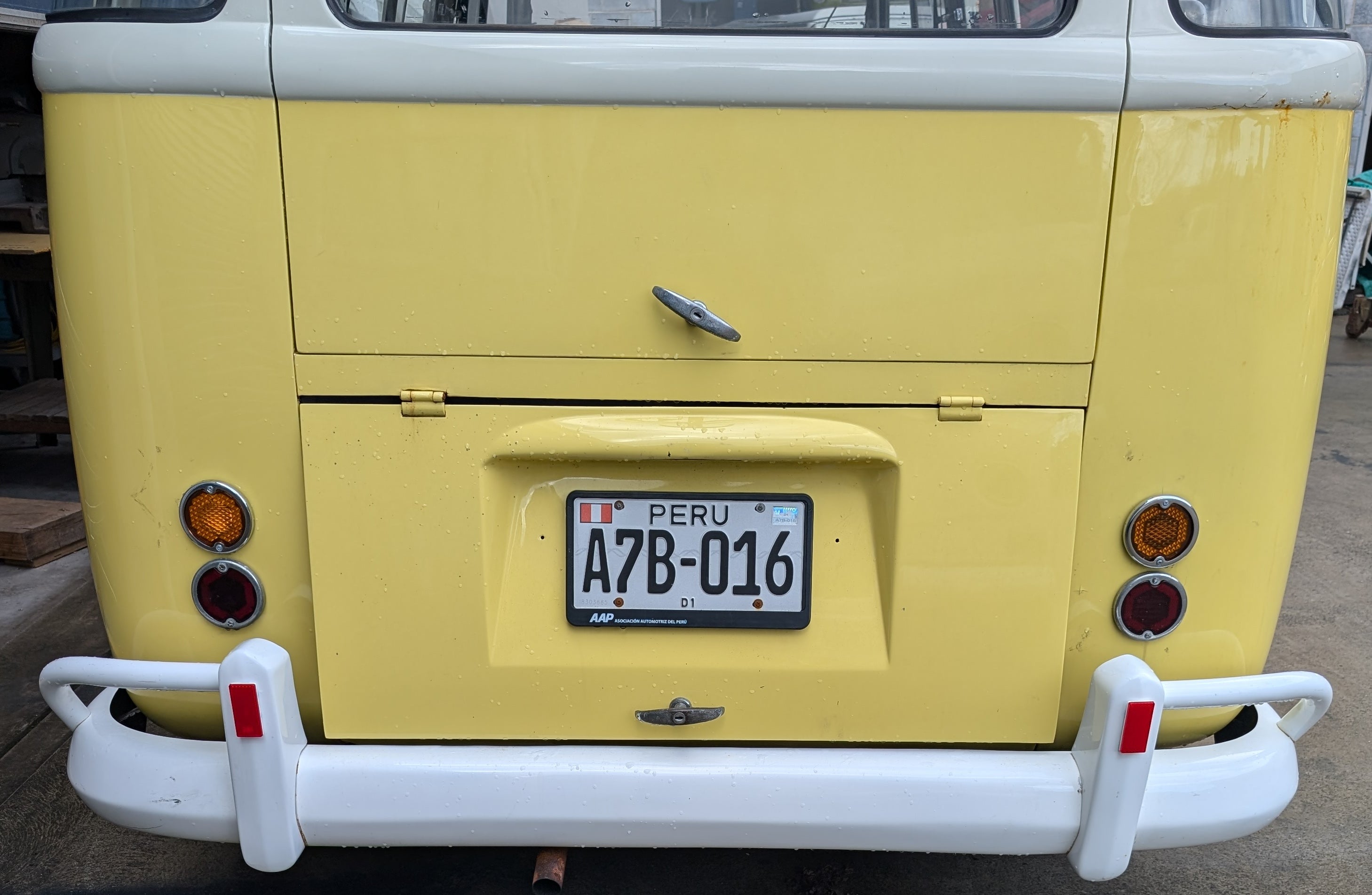Have you ever thought about importing a Kombi from the US or South America? If you're like me, you've probably trawled all the advertising websites and looked at the prices of Kombis in other countries. South America especially has a load of them since they were made in Brazil up until 2012. Here is a bit of an inside story about what's involved with importing and registering a older vehicle in Australia.

This bus was owned by a mate of mine. He has family connections in Peru and bought a bus over there a number of years ago and had it completely restored both inside and out. They really did a nice job and at a fraction of the price of what you would be charged over here. A lot of people will avoid buying buses in South America as the Brazilian manufactured basis are viewed as much poorer quality. It surprised me to learn though that the buses in Peru were actually fully imported from Germany. Peru previously had a trade embargo with Brazil so never got any of there buses. I'm sure there are quite a few Brazilian buses there now but this one was 1960 model, fully imported from Germany.

So, what's involved in bringing one in and how much does it cost? Well, the cost of the purchase and restoration was the cheap part. Shipping and taxes are by far the biggest expenses. Australia taxes them with GST and import duty which is around 25% of the value which they calculate based on the full cost plus the shipping cost. Once it arrives off the boat in Australia you'd think the process would be nice and simple as long as you have all your paperwork. And, yes, it used to be. However, the import laws were changed in 2021. There are now a few categories for imports. Most cars over 25 years old will come in under the "older vehicle" category. Previously, to register them, all you had to do was have your import approval, get a roadworthy certificate which involved some minor modification to comply with Australian standards and then you just went in to the RTA and registered it. Really not that hard. However, now, the process to check compliance has been handed over to an engineer so every vehicle coming in as an "older vehicle" and to be registered in NSW, requires a Vehicle Safety Compliance Certification Scheme Certificate (VSCCS). This will set you back close to $2,000 and that's just for the certificate. You may also need to complete some modifications. In this instance we needed to change the rear indicators and fit reflectors. Other than that, we also fitted seatbelts to the vehicle as per the customers request, though this was not a requirement. If you are fitting aftermarket seatbelts though, they do need to comply with Australia standards and need to be certified by an engineer. This really was a minefield for the customer to navigate and he was very thankful that we could assist with the whole process from start to finish

So, if you're thinking about importing a classic VW Kombi or any other older car, just be sure you know the requirements first. If you need assistance with registering your imported car in Australia we would be happy to help.

